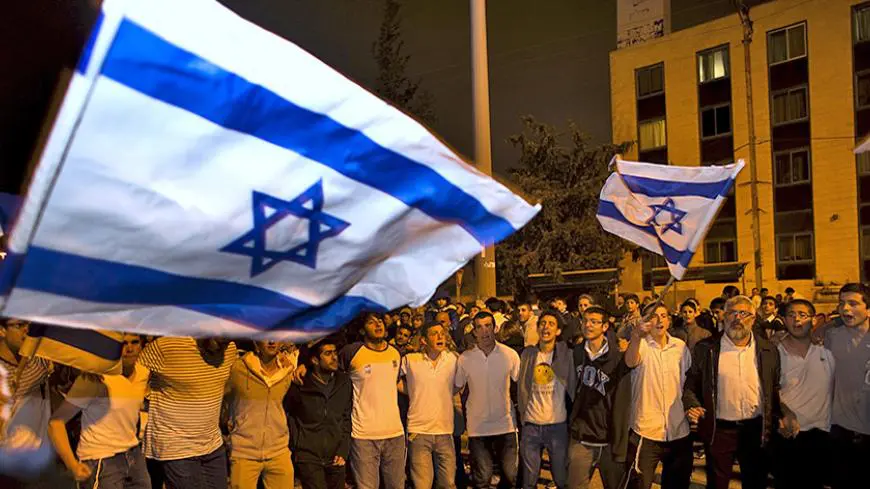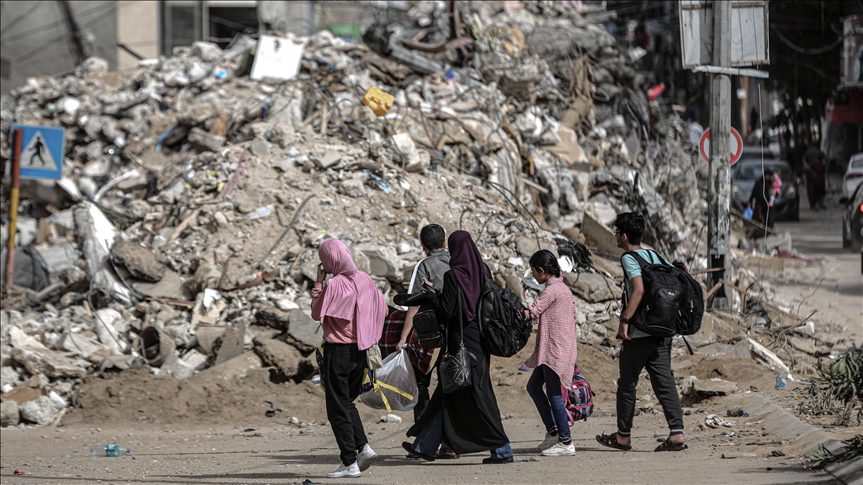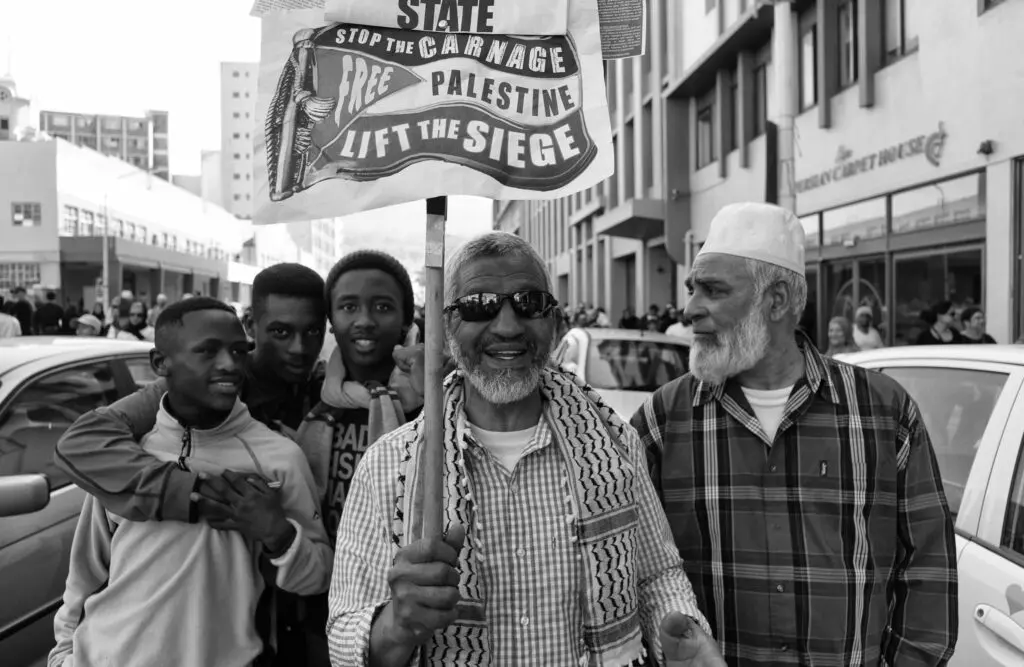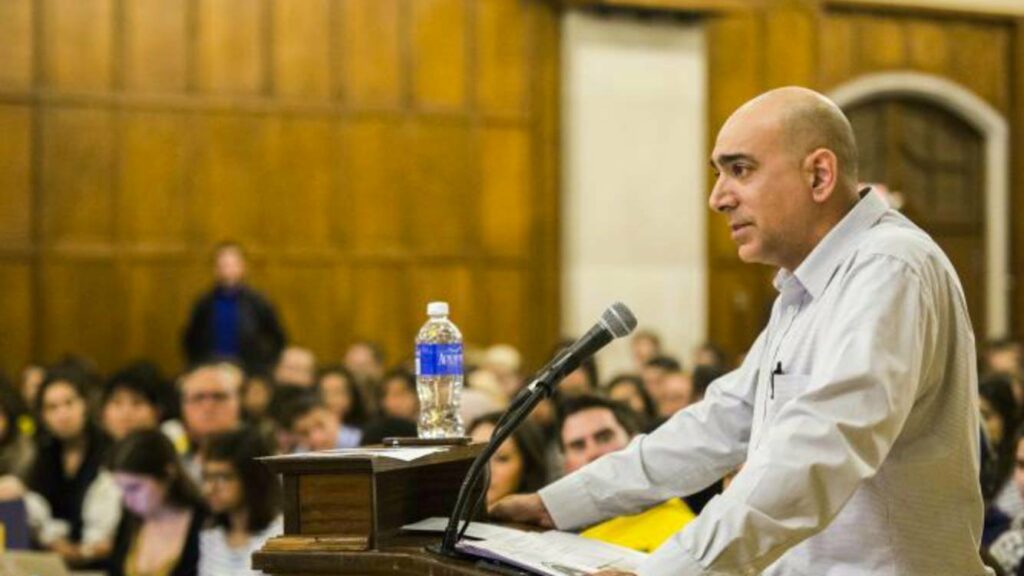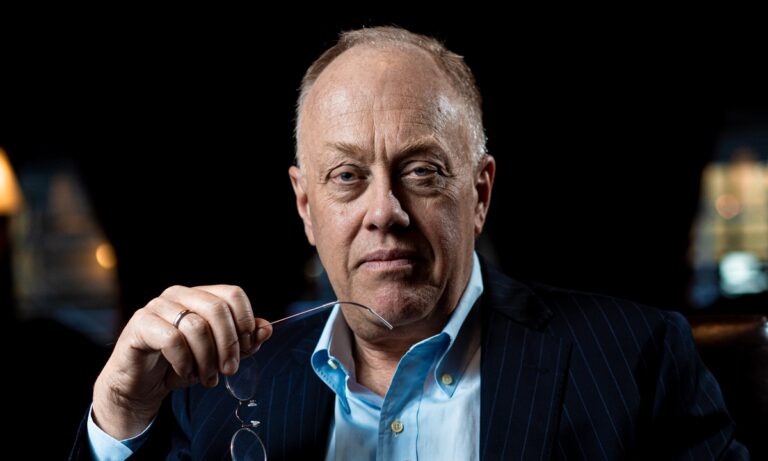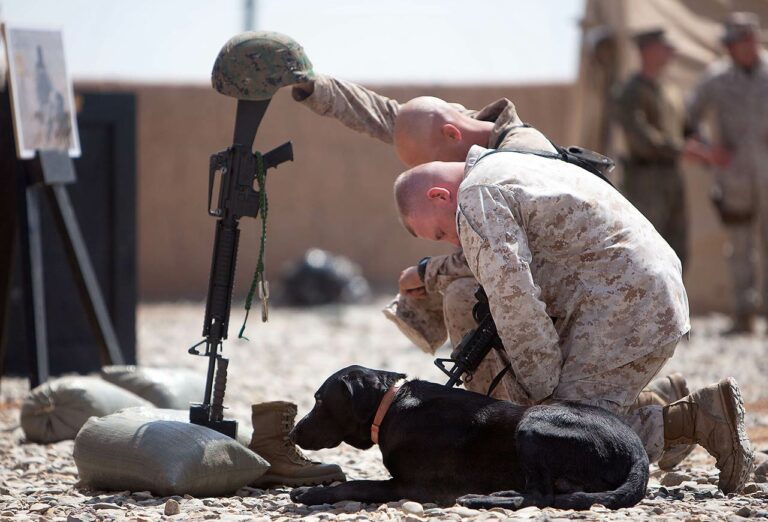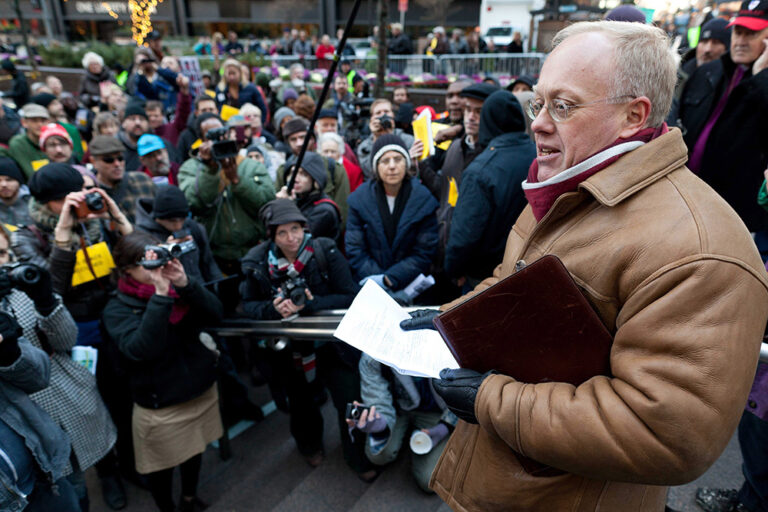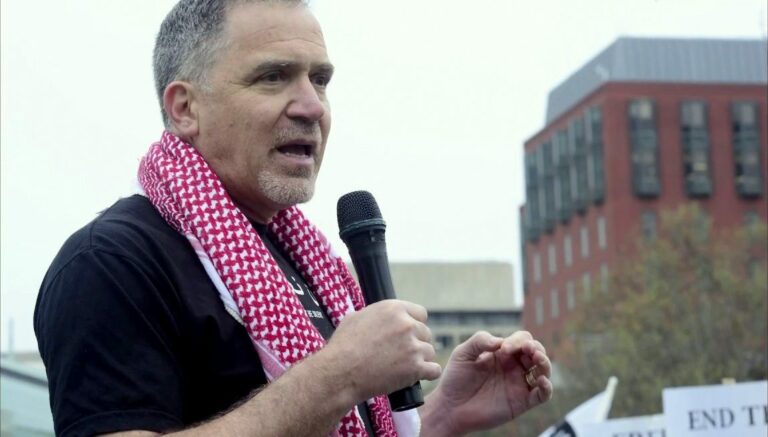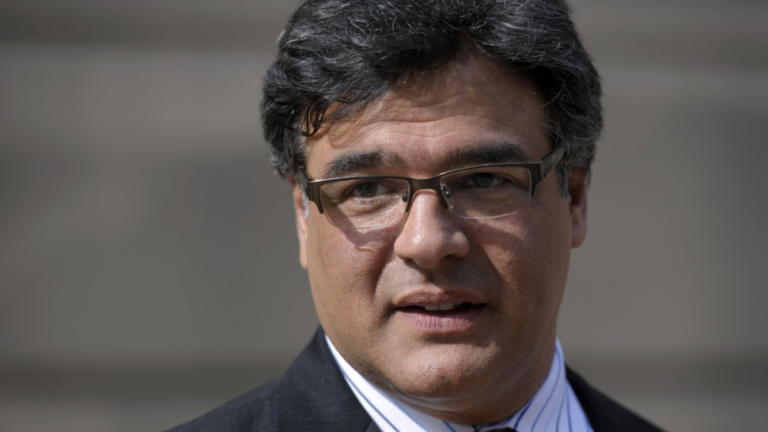Mr. Abunimah, founder of Electronic Intifada, says after the Israeli 2006 invasion of Lebanon and the 2008 attack on Gaza, he knew what he had to do.
This is an episode of Reality Asserts Itself, produced May 13, 2014.
STORY TRANSCRIPT
PAUL JAY, SENIOR EDITOR, TRNN: Welcome to The Real News Network. I’m Paul Jay. And welcome to Reality Asserts Itself.
In this new series of interviews, we’re going to look at one of the more important publications that studies reports and analyzes the situation in the Middle East, with a special focus on Palestine. Electronic Intifada was formed in 2001.
Now joining us in the studio is Ali Abunimah. He’s cofounder and executive director of Electronic Intifada. It’s an award-winning independent online news service focused on Palestine, as I said. He’s also author of the new book The Battle for Justice in Palestine and, in 2006, One Country: A Bold Proposal to End the Israeli-Palestinian Impasse. He’s contributed to several other books, written hundreds of articles on the question of Palestine, in a wide array of publications, including The New York Times, The Guardian, the Los Angeles Times, and Al Jazeera. He’s also the recipient of the 2013 Lannan Cultural Freedom fellowship.
Thanks very much for joining us.
ALI ABUNIMAH, COFOUNDER, ELECTRONIC INTIFADA: Thank you, Paul.
JAY: So, as our viewers know, Reality Asserts Itself usually starts with a personal back-story, and then we get into some of the issues. And that’s what we’re going to do with Ali.
So start from the beginning, a little–just some basic information, where/when you were born, where you grew up.
ABUNIMAH: I was born in Washington, D.C. And my father–both my parents were born in Palestine, but at a young age my father joined the Jordanian Foreign Ministry, became a diplomat. And so he was a junior diplomat when I was born in Washington. We didn’t spend much time. We went to the U.K. and to Belgium, where I actually went through most of my schooling, through high school. And then I came back to the United States in 1989 for university, and I’ve been here ever since.
JAY: So growing up in Washington, then U.K., then Belgium, what is the political atmosphere you’re in? What’s the discourse like from your parents and your immediate family?
ABUNIMAH: Well, many people would think that because my father was a diplomat in the Jordanian service, that it would have been a very conservative kind of background, and that really wasn’t the case.
I credit my parents with my interest in Palestine. They always, you know, without telling us what to think, they always spoke about their experience as children, the experience growing up, and a sense of loss for a place that–you know, at an early age I remember hearing the name but not having any concept of what it was, it was so distant from our reality. And they would talk about–I mean, I would often hear them say, do you remember the days in Jerusalem, or do you remember the days in Ramallah? And I didn’t know where those places were. And gradually, as I learned and started to ask questions and found that my parents had this whole life before we were born in a place that was now inaccessible to them–and that was a very profound introduction to Palestine.
And, as I wrote, in one country, my father spent a lot of time–this would have been in the 1980s when I was growing up–briefing members of parliament and journalists and all sorts of people about the situation, and I used to listen. And then when I was in high school, the first intifada broke out in 1987.
JAY: Before we get there, were your parents part of the population that were expelled in ’48, your family?
ABUNIMAH: Yes. My mother is from a village called Lifta, which is West Jerusalem, basically. And they were forced to leave in early 1948. And they became refugees. They went, initially, to another part of Jerusalem, and then they ended up in Jordan.
My father is from a village called Battir, which is in the West Bank. And, interestingly, both villages have been in the news recently, Lifta because it’s one of the very few villages that was depopulated in 1948 that remains largely intact, and there are people from Lifta who are fighting to preserve the village, and ultimately to return to it. And Lifta is now the target of an Israeli plan to build luxury housing, presumably for the Jewish population. And so, recently there was a court order that stayed this, although for how long we don’t know.
And Battir has been in the news because it has been recognized by UNESCO as a site of particular importance in terms of its ecosystem and the terraced irrigation that dates back to Roman times. And it actually won an award from UNESCO a couple of years ago. And so even the Israeli organization to protect nature has petitioned the high court against a plan to build the apartheid wall through Battir. So it lies right on the so-called Green Line between the West Bank and the part of Palestine that became Israel in 1948.
So they both have directly experienced sort of the major phases of what has happened to Palestinians in ’48 and ’67.
JAY: When did you connect with the Palestinian cause? A lot of, you know, young people of immigrants or emigres, certainly in the United States they get Americanized and a lot of them don’t have any connection with their parents’ connection to where they came from. When did this be–did you grow up with this being part of your identity, this cause? Or is it something that you found as you got older?
ABUNIMAH: Well, it was really the First Intifada, which began in 1987.
JAY: And how old are you then?
ABUNIMAH: I would have been about 16 or 17. And I was in high school.
JAY: So young people your age are on the streets fighting.
ABUNIMAH: Exactly. Exactly. And this was the first time in my life when either I had been aware of, you know, regular daily media coverage of what was happening in Palestine. And people remember the First Intifada for many reasons. First and foremost, Palestinians who lived through it suffered greatly. And yet they still feel that it was kind of a golden age in Palestinian resistance, Palestinian society. But for people outside Palestine, it’s often remembered as the moment when the Israeli narrative was shattered for the first time for Western audiences, even here in the United States.
But for me personally, it was the first time I could see images of Palestine and Palestinians on the TV. And, of course, there was no internet, there was no Google, you know, there was no YouTube, so it was difficult to see images of Palestine. There weren’t movies you could go and see in the movie theater. So I was fascinated. And I would study these–. You know, I remember there was something called Teletext, where you could get news through your–text news through your TV, and I would search the Teletext, you know, voraciously for any news about what was happening, and of course watched the TV news as well. So for me that was what awakened me to what was happening.
And then, when I came to the United States, to university, I encountered pro-Israel groups on campus. I had never encountered anything like it.
JAY: This was at Princeton.
ABUNIMAH: Yes. And, you know, one of the guys who was very active in a pro-Israel group on campus at that time, in the late ’80s, eventually went on to be an adviser to Netanyahu when he was prime minister the first time in the late ’90s. So that gives you a sense of the kind of politics that I encountered for the first time.
And it was shocking, because I felt, you know, how could people say things that are so removed from reality?
JAY: What sort of things?
ABUNIMAH: Well, it was just the rewriting of history and the demonization of Palestinians, I mean, two things that continue to this day. And that produced the reaction in me that I wanted to answer it and I wanted to not allow it to pass unchallenged, I guess.
JAY: So you start to argue with these people.
ABUNIMAH: Yes, or to attend events on campus or to–.
JAY: Was there a Palestinian support group on campus?
ABUNIMAH: There was a small one, and, you know, as campus groups do, they wax and wane depending on who is, you know, there at a given time. But there was one. And, you know, I wouldn’t say that it was–I can’t compare what we did with what’s happening now, where you really have a national movement, but we would, you know, have every year an annual event commemorating the beginning of the Intifada, reading the names of the people who died, trying to educate people on campus. But we never had the sense that we were part of something bigger than what was on campus.
JAY: And when you–the first day you arrive in Princeton, if you had imagined what you might be doing in five or ten or 15 years, what was the course of your life as you saw it then?
ABUNIMAH: It’s very simple: I was going to be an engineer.
JAY: So what happened? You’re not an engineer now.
ABUNIMAH: No. Sometimes I regret that. I think life would be a lot more certain and secure in some ways if I were an engineer. But, you know, you go to university–. I mean, I came with a very strong interest in sciences, and I wanted to do engineering. Nobody had suggested it, or it was entirely my choice. But, you know, as a university should do, it opens up all kinds of possibilities and encounters that, you know, lead you down different paths. And I wouldn’t have predicted any of what’s happened. And, you know, I still don’t know what I want to be when I grow up.
JAY: Yeah, I share that feeling.
ABUNIMAH: Right. So–you know.
JAY: But–.
ABUNIMAH: Don’t ask me what I’ll be doing in five years, because I don’t know. I just–my focus has always been to–I feel very fortunate that if the work I can do has an impact and, you know, people are interested in reading what I write, then that’s what I should do, and I’ll worry about the rest later.
JAY: Somewhere in the course of this, you’re on a track–engineer, an interest in science, but it’s also–it’s a career. It usually gets paid pretty well. It’s, you know, a fairly conventional course. To leave that for journalism, particularly journalism and analysis and writing about one of the more controversial causes, and especially in the United States is something that–is, if you do a fairly straightforward take on what’s happening there, one can be under attack often. Where do you make that–when do you make that kind of choice, that this is where my life is headed, at least for now?
ABUNIMAH: Well, engineering only lasted a year. And then I studied politics. But I never thought about what I would do. I mean, I just really took things as they came. And for many years I didn’t make a living as–you know, writing about Palestine or doing journalism. I had other jobs, and I continued to do this work, you know, in my, quote-unquote, spare time. And at a certain point, maybe six, seven years ago, I don’t remember, I did have to make a choice whether to really take that–I mean, I guess I always had the sense that if I wasn’t doing it as full-time work, then, you know, you have that greater sense of security. But I really felt like–and I think this is particularly true after–around the time of the Israeli attack on Gaza in 2008, that this is work that needs to be done. And I’ve been doing it and I can do it, and so I should stop second-guessing myself and I should just get on with it and do it.
JAY: And how much, when you saw the destruction of that attack on Gaza and the number of people that were killed and the sacrifices people made, how did that–what was the effect, I guess, in terms of that choice?
ABUNIMAH: Well, of course, that was a particularly horrific attack, but it was far from the first time. I think it was a watershed for many people who hadn’t necessarily been paying attention. But even in the previous couple of years, hundreds of Palestinians had been killed in Gaza. And, of course, there’d been the attack on Lebanon in 2006, which was very similar in terms of the scale and the Israeli methods that were used, cluster bombs and the wholesale destruction of neighborhoods, the so-called Dahiya doctrine that Israel tested in Lebanon and then used in Gaza in 2008. I felt like there needs to be accountability, there needs to be people who, you know, continue to ring the bell, and that it’s not just something that we express outrage, you know, for a few days or a few weeks and then we, you know, go home until the next time, that we need to keep ringing the bell.
JAY: And do you get back to Palestine? Do you get back to Gaza? Do you go to Gaza or the West Bank?
ABUNIMAH: I was able to go to Gaza. I haven’t been to the West Bank in a number of years, but I was able to go to Gaza in May last year as part of the Palestine Festival of Literature. And I’d been trying to go for a couple of years. I first attempted to go in 2009 as part of the Gaza Freedom March, but then, at that time, the secret police of the Mubarak regime in Egypt prevented us. And I was able to go last May, but that visit, you know, wouldn’t have been possible if we’d waited a few more weeks, till after the coup, the July 3 coup in Egypt. Now it’s impossible. Now if you look at–just a few weeks ago, there was a women’s delegation that tried to go to Gaza. Medea Benjamin had her arm broken, I believe, and they were kicked out of Egypt, and other delegations have tried to go. So I was very lucky to have that week in Gaza last year.
JAY: Why haven’t you been able to get to the West Bank?
ABUNIMAH: Well, I have not attempted to go to the West Bank in a few years. And that’s just a personal decision I’ve made for the time being.
JAY: Why?
ABUNIMAH: Well, you know, as you know, when people go to the West Bank, very often there are efforts to examine them.
JAY: You have to go through Israeli borders one way or the other.
ABUNIMAH: Yes. And I’ve just decided that that’s not something I feel like doing at the moment.
JAY: Okay. We’re going to continue our series of interviews with Ali on his new book, The Battle for Justice in Palestine. So please join us on Reality Asserts Itself on The Real News Network.

